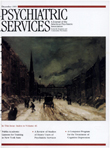A survey of psychiatrists with APA certification in administrative psychiatry
Abstract
OBJECTIVE: Psychiatrists with American Psychiatric Association certification in administrative psychiatry were surveyed to determine their perceptions of the benefits of certification, their certification- related learning activities and interests, and their recommendations for enhancing the value of certification. METHODS: A questionnaire was mailed in January 1994 to all 427 psychiatrists who had obtained certification in administrative psychiatry. A total of 254 usable responses were received. Respondents were divided into two age groups, younger than 50 years and age 50 and older, for comparison purposes. RESULTS: Fifty-five percent of the older group (204 psychiatrists) and 89 percent of the younger group (50 psychiatrists) responded. Nine percent of the older group and 18 per cent of the younger group held advanced degrees in administration, mainly master's degrees in public health. Both groups devoted 62 percent of their time to administrative work. Roughly 80 percent of both groups would recommend that colleagues seek administrative certification. Both groups rated self-satisfaction and increased skills as the greatest benefits of certification, and increased income as the least. As learning activities, the older group was more likely to participate in mentorships, and the younger group in self-study and continuing education activities. CONCLUSIONS: Interest in administrative psychiatry and certification should be stimulated by increased emphasis on administration in residency programs and in continuing education, linkages with degree programs, recognition of administrative psychiatry as a subspecialty by the American Board of Psychiatry and Neurology, and increased support from APA and the American Association of Psychiatric Administrators.
Access content
To read the fulltext, please use one of the options below to sign in or purchase access.- Personal login
- Institutional Login
- Sign in via OpenAthens
- Register for access
-
Please login/register if you wish to pair your device and check access availability.
Not a subscriber?
PsychiatryOnline subscription options offer access to the DSM-5 library, books, journals, CME, and patient resources. This all-in-one virtual library provides psychiatrists and mental health professionals with key resources for diagnosis, treatment, research, and professional development.
Need more help? PsychiatryOnline Customer Service may be reached by emailing [email protected] or by calling 800-368-5777 (in the U.S.) or 703-907-7322 (outside the U.S.).



